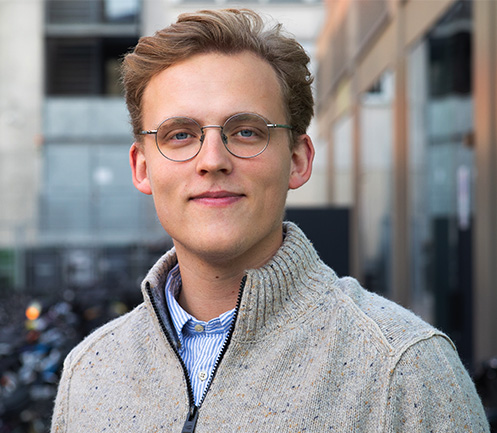Maximilian Dünnebacke
 From: A small village in the Black Forest in Germany
From: A small village in the Black Forest in Germany
Speaks: English, German
Pet Peeve: While I am not very organised in my private life, I can’t stand people messing up the order on my bench and taking stuff from there.
Hobbies: Skiing, bouldering, hunting
In three words: Easy-going, curious, foody
Where would you be if you could be anywhere else right now? New Zealand. I have never been and always wanted to see it
Who do you most admire? Marie Curie
More about Maximilian
Route to PhD
After school in Germany, I spent a year in the USA before doing a one-year orientation study in MINT, TU Munich and stayed there for a Bachelors degree in Molecular Biotechnology and a Masters in Biochemistry. I was then awarded the NCCR AntiResist PhD Fellowship, focusing on drug-target interaction using LiP-MS with a focus on antibiotics and antibiotic resistance.
Challenges Along the Way
Navigating the academic system when my parents didn’t study and no one in my family is in a related field was challenging, as it was not always easy to get advice or guidance. After I made the decision to study in the field I am in now, my grades steadily improved and I finished in the top of my class in both my Bachelors and Masters.
It is important to realise that there will be ups and downs, but results in the lab can’t dictate your life and how you feel. It helps me to know that loads of others have made it through their downs and so I can as well. At the same time, I try to enjoy and celebrate the ups, instead of just moving on to the next step, as there are always next steps.
Fellowship facilitates tight interaction with other disciplines
A day in the life of a PhD student in this field is a day in the lab. AntiResist does not change that completely, but there are more chances to interact and get inspiration from other people, because of the focus on multidisciplinary collaboration. There are also opportunities to learn about starting your own company, and you are encouraged to bring your research to industry.
AntiResist makes available multiple learning channels. I was able to go to two different universities in two different cities, using different methods. There aren’t many programs for biologists, where you interact this tightly with clinicians and engineers at the same time.
I come from a structural biology background, but was fascinated by the method developed by the Picotti lab. I had lots of ideas on my own for which this method would be useful and I could imagine spending three to five years of my life focused on this so, after my rotations, I chose this route to complete my PhD.
Advice to Fellowship applicants
The committee aren’t looking for people who are already experts. A PhD student is supposed to learn. What they look for is scientific interest, curiosity and enthusiasm. One way of showing this is by reading up on the work they do in their lab and the NCCR itself. Show that you are willing to put in the work and are focused on this program specifically, while also being yourself.
Parting Words
My motto in life is to try not to make the world a worse place.

